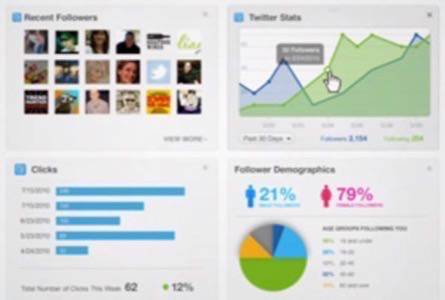Earlier this week we provided a few tips for marketing your startup on the cheap, and a large part of that involves managing your brand’s social media presence. Well that’s all fine and dandy until you realize that there are dozens of social networks on the Web and actually managing them can be quite a daunting task for a small business on a budget. Enter Sprout Social, which does for social media what Zendesk does for support tickets, providing a rich Web-based dashboard for monitoring and management.

This morning I chatted with Justyn Howard, CEO of the Chicago-based startup that is exiting private beta today. One interesting thing to note about the company is that it recently took investment from Lightbank Ventures, the same firm behind break-out Chicago success story, Groupon.
“Social Relationship Management” or SRM
With one of two price plans, small businesses and professionals can use Sprout Social to keep a bird’s eye view of their brand’s social media presence. The service provides analytics, contact management, geographic targeting, cross-platform posting, demographic information and lots more.

The basic $9 a month plan lets a small team manage 5 users and supports Twitter, Facebook and LinkedIn. A steep jump up to $49/month doubles your user pool and opens up access to location-based networks like Yelp, Foursquare and eventually Facebook Places.
These advanced features could be great for brick-and-mortar businesses that want to track who their loyal customers are, or when someone stops by for the first time. For startups, the basic plan can help them keep up with activity across their social media accounts, making it less likely to miss important messages from current or potential customers.
Chicago Startups & The Eyeball Business
I also spoke briefly with Howard about the company’s experience getting started, especially in such a unique environment like Chicago. One of the big differences between the Windy City and Silicon Valley, he says, is in the way companies launch their businesses.
“I don’t feel like the eyeball business mentality is out here as much. It’s not about just getting traffic,” says Howard. “We don’t have a free version, and people say ‘Oh, that’s very Chicago of you,’ […] We decided we had to do it our way – if we’re going to ask people for their money, it needs to be at a certain level.”

What Howard is saying is that some companies choose to launch early and let their users play around in buggy experiences. In the case of Sprout Social, Howard felt the company couldn’t ask users to fork over cash without having a solid, high-quality product first.
Howard says the company has only built about 10% of its plan, so a lot more is on the roadmap for Sprout Social. For now, the platform seems like a solid solution for small companies looking to wrangle their social brands into one tidy interface.

















